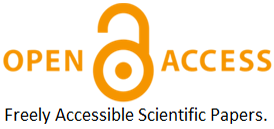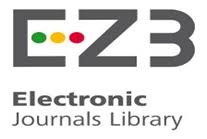Archive
Volume 1, Issue 1
International Journal of Science and Engineering Applications (IJSEA)
Volume 1, Issue 1 - November 2012
The Effect of Medium and Gender on Mathematics Achievement among Secondary Level School Students
Abstract:
India is a Multilanguage country and students pursue their education in different language. Medium and gender are the key factors of education. This paper explores the influences that medium and gender may play vital role on the mathematics achievement of students. The data for this survey are collected from 8th to 10th grade students of Guwahati city of Assam, India. It investigates the mathematics achievement of the students divided on basis of medium and gender. Analysis of data indicated that there were no significant differences in mathematics achievement of the students based on medium and gender.
Keywords: Mathematics Achievement, Medium, Gender.
References:
[1] Alkon, I.R. , (1970): Non ineffective variables and mathematics achievement, Direction for Research, Journal of School Psychology, 8, pp 28- 36Ding, W. and Marchionini, G. 1997 A Study on Video Browsing Strategies. Technical Report. University of Maryland at College Park.
[2] Aikon , I. R. (1976): Update on attitude and other effective variables in learning mathematics, Review of Educational Research 46, pp 293-311 Tavel, P. 2007 Modeling and Simulation Design. AK Peters Ltd.
[3] Best, John W. and Kahn, James V. (1996) : Research in Education, 7th Edition, New Delhi, Prentice Hall of India Pvt Ltd.
[4] Burak M. J. (1975) : Investigation about casual predominance in the relationship between mathematics achievement and attitude toward mathematics, ( Doctoral dissertation , Boston College, 1975), Dissertation Abstracts International 36 , 2155
[5] Collaham W.J. (1971) :Adolescent attitude towards mathematics, Mathematics Teachers 64, pp 751- 755 .
[6] Deci, E. L. (1992): The relation of interest to the motivation of behavior, A self- determination theory perspective. , New Jersey : Lawrence Eribaum Associates, pp 43-70
[7] Hidi, S. and Renninger, K. A. (2006): The Four-Phase model of interest development, Educational Psychologist, 41 (2), pp 111- 127 .
[8] Watt, H.M.G.; Pekrun, R.; Goetz, T and Frenzel A.C. (2010): Development of mathematics Interest in Adolescence : Influences of Gender, Family and School Context, Journal of Research on Adolescence, 20 (2), pp 507- 537











